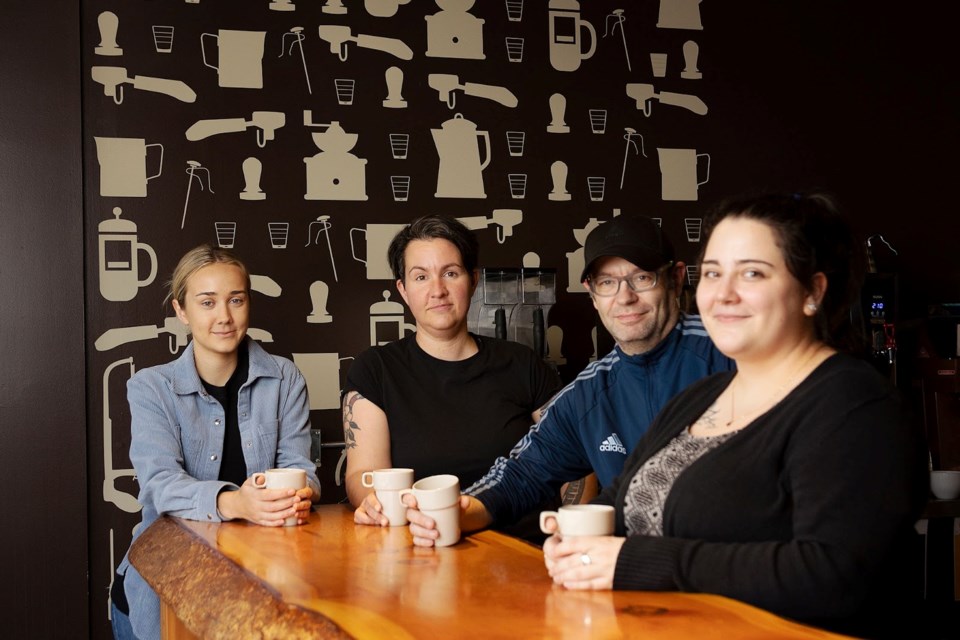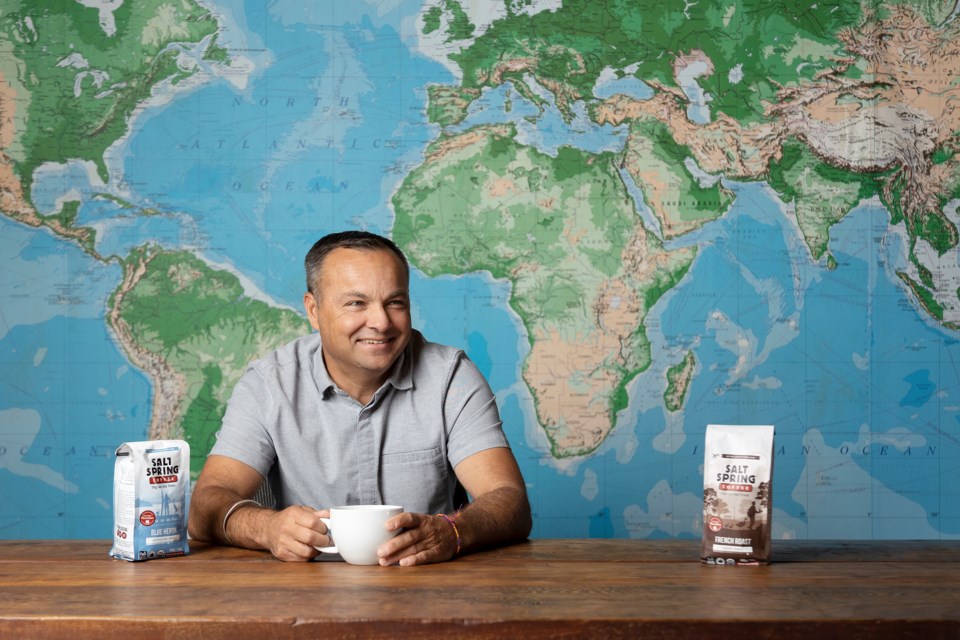Droughts and floods, rising sea levels and melting glaciers – the impacts of climate change are felt in every corner of the globe. Mickey McLeod, co-founder and CEO at , believes urgent action is required.
“We live in difficult times,” he says. “Business success is often measured by shareholder profit. Yet while that’s important, money cannot be the only driver since this often comes with extra costs.”
A commitment to sustainability at Salt Spring Coffee started with the promotion of organic, regenerative and Fairtrade principles at a time when they were not yet “mainstream,” says McLeod. “We're in our 26th year of operation, and a dedication to environmentally sound and fair practices has always been part of our DNA.”
McLeod sees supporting organic regenerative agriculture as “an important piece for mitigating climate change, preserving soil health, enhancing food security and supporting small-scale farmers.”
When “producers move away from using herbicides and pesticides, they arrive at practices that are healthier, not only for the people doing the work but also for the environment,” he notes. “And organic and fair trade premiums help to empower coffee co-operatives as they can allocate funds for cultural, educational, agricultural or social purposes of their choice.”
Beyond bringing benefits for all involved, Salt Spring Coffee’s strong relationships with coffee producers, traders and brokers have enabled a steadfast commitment to quality. “Producers rely on us; and we rely on producers. We continue to work with them even through challenges, and they know we’re not just chasing the lowest price,” McLeod explains. “We treat all our supply chains and employees with respect and care. We've been a B Corp since 2010, one of the first to achieve this designation in Canada.”
Close attention to the environmental footprint also extends to roasting, packaging and distribution. “Roasting coffee takes a lot of energy, so we do our best to minimize the impact, for example, by operating the roaster for 10-hour cycles that are more fuel-efficient,” he says. “We don’t use much water and we choose efficient means of transportation.”

Salt Spring Coffee’s zero-waste policy – and partnerships with product innovation and recycling companies – have enabled the company to “set new standards – and divert an average of about 84.48 per cent of waste from the landfill,” says McLeod.
Since coffee packaging needs to ensure a product’s integrity and quality, conventional paper products are often impractical. However, a new product, which resembles “heavy cardstock, delivers on all parameters without plastic and foil lamination,” he says. “For Salt Spring Coffee, we launched this packaging with Costco Canada, which represents about nine tonnes worth of our product in fully paper-recyclable material per year.”
Product innovation also inspired Salt Spring Coffee to use coffee pods. “For a long time, we didn’t want to get into single-use coffee pods because we didn’t want to add more plastic to the waste stream,” explains McLeod. “But now, we’ve brought an innovative – and BPI certified compostable – product for coffee pods online.”
Steps towards a circular economy are important for Salt Spring Coffee, “because waste is a big challenge,” he says. “More and more countries plan to ban plastics in the coming years, so we’re making these changes sooner rather than later.”
Beyond improving operational environmental performance, Salt Spring Coffee is committed to bolstering local food production, for example, through supporting community-supported agriculture (CSA) programs and other agricultural groups and initiatives, says McLeod. “We all have to do our part to make our food systems more resilient.”
These decades-long commitments have earned Salt Spring Coffee a loyal following. “Our partners and customers know that there are some things we can't or won’t compromise on, because they won’t do anybody any good in the long term,” says McLeod. “But we also realize a lot more work is needed to turn the dial in the right direction – that’s why we're leading by example.”



